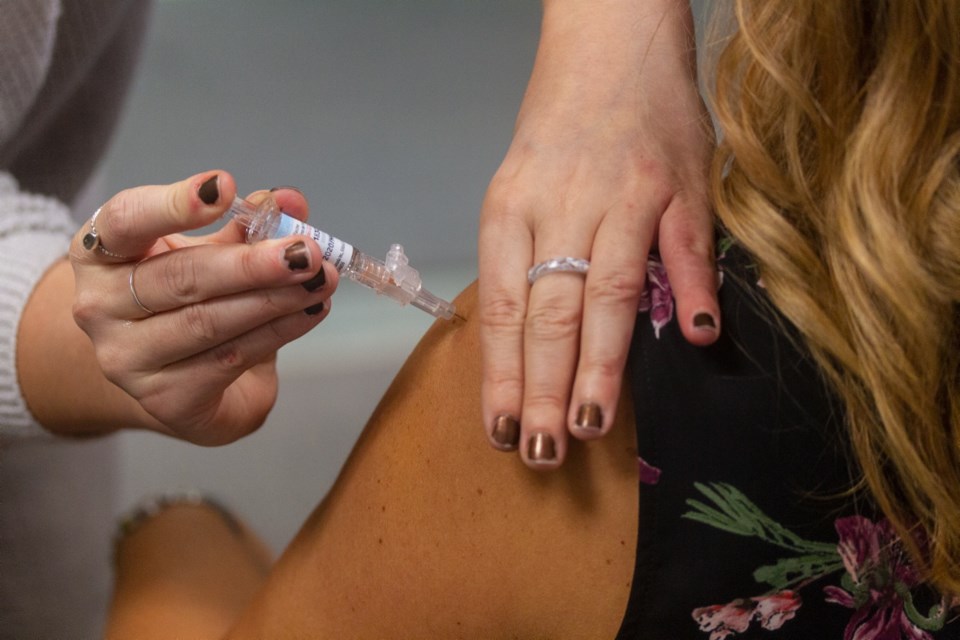The number of influenza cases on Vancouver Island has been low compared to previous years, but is beginning to rise, Island Health medical health officer Dr. Dee Hoyano said Tuesday.
“We’ve seen our numbers start to rise in the last week or so, in terms of hospital admissions, but up to this point, there have been quite low levels of activity,” said Hoyano.
By comparison, sick patients are flooding doctors’ offices in southern California, seeking treatment for a particularly potent B strain of the virus.
Vancouver Island has seen very little of influenza B, said Hoyano. “On Vancouver Island, we’re getting a different strain, influenza A,” she said, adding there have also been a few cases of influenza B.
From the beginning of September until Jan. 7, 75 patients were admitted to hospitals on Vancouver Island with the flu. A hospital admission means the patients has at least stayed overnight.
Levels of flu activity vary from year to year, said Hoyano. The flu season in 2016-2017 was particularly bad, with the highest number of hospital admissions in years.
This year has seen fewer admissions, but the number in the past week is starting to climb, she said.
“We’re probably going to see more of it, but it’s too early to say when it will be most busy.”
Flu symptoms include fever and respiratory problems, including cough. If respiratory symptoms worsen, they can lead to pneumonia or make heart problems worse. Other flu symptoms can include extreme fatigue and muscle aches.
“For some people, it’s just overwhelming. They just can’t function,” said Hoyano. “But for most healthy people, it’s just taking the time, staying at home to recover.”
Island Health recommends that those who are starting to feel ill with flu and are at higher risk of complications — the elderly, people with babies or those who are frail for other medical reasons — connect with their doctors early for an anti-viral medication called Tamiflu, to try to decrease the severity of the illness.
“Sometimes it doesn’t mean going to hospital, but connecting with your physician to get that.”
Those with problems breathing or other worrying symptoms should seek medical treatment, she said.
On Monday, a 17-year-old high school student in Winnipeg died of complications from influenza A. Manitoba Health says one other person has died and more than 30 have been hospitalized due to flu since September. It says the number of people visiting emergency rooms in the last week of 2019 was the highest in three years.
A memo to staff at St. Boniface Hospital in Winnipeg last week said this year is unusual in that three flu viruses have been peaking at the same time.
Manitoba Health urged people to get annual flu vaccines, especially those who are young, elderly and have chronic health conditions.
— With a file from The Canadian Press



